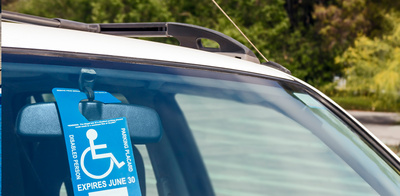
Everything You Need to Know About Your Height When Applying For the Disability Permit
Accessing handicapped parking in the US is essential. This program enhances ample availability and opportunity for individuals with qualifying conditions to get easy parking, making their life easier when driving to busy urban centers.
Accessible parking spots make a huge difference for an individual having limited mobility. The mobility issues might result from various conditions, eliminating or reducing their need or ability to go for an appointment or to a grocery store. Nonetheless, does a height disability permit exist? Can authorities provide you with an accessible placard or permit for being short?
Does the Authority Provide a Disability Sticker For Being Below 5 Feet?
Authorities don’t consider being short as a disability. The Americans with Disabilities (ADA) Act recognizes an individual with a disability as one with an impairment creating a great obstacle in participating or completing various major life activities.
For instance, if an individual is below five feet but doesn’t have any driving or driving difficulties, it’s less likely for them to qualify for the ADA. In contrast, if an individual suffers from diastrophic dwarfism, a health problem that may affect their mobility due to the spine’s curvature or joint differences, they can qualify for the permit or placard.
Can You Get a Disabled Permit For Being Tall?
Like shortness, the ADA Act doesn’t recognize excessive tallness as a disability. Nevertheless, extreme tallness in some individuals results from various conditions, like gigantism. This condition might lead or predispose you to some chronic health problems than your average-height peers.
Gigantism is a unique condition resulting from excessive amounts of certain growth hormones the body releases as you grow. Several conditions associated with gigantism, like enlargement of the feet and hands, may lead to mobility issues as you grow. Furthermore, gigantism may predispose you to arthritis, vision loss, or increased heart disease risks. Besides gigantism not being one of the qualifying conditions, its repercussions may qualify you for the disability parking program under ADA.
Will the State Authorities Consider Extreme Height or Shortness as a Disability?
Despite height not being a disability, most individuals on either side of the spectrum are trying to push for the program to consider it. For instance, in 2013, a woman felt that her short stature made her disabled or handicapped for a particular position within the workplace. The lady filed a claim at the courts, and the ADA Act revealed that this complaint might be valid against her employer.
Additionally, another movement launched a complaint after individuals reported that plane operators and passengers discriminated against a man for his height while on a particular airplane. The man claims that the operators made him stand for the entire flight as he didn't fit in the available seats. The founders launched the Tall Consumerism movement in 2009, but it didn't get the true changes or effects in the state's disability law.
Accessible Parking Availability and the Qualifying Conditions
The law requires that all parking lots have a minimum space for designated or accessible parking spots proportional to the parking facility’s size. Smaller lots, having between 1 to 25 spots, should have at least one disabled parking space. As the parking size grows, the number of accessible parking spots increases. For instance, the appropriate number should be 20 per 1000 parking spaces, then one space for 100 parking lots.
Authorities classify various conditions into the handicap parking permit allowance. You can qualify for the disabled parking permit if you have heart or lung conditions, vision problems, like low-vision or partial and limited mobility, or using your limbs or legs partially. Furthermore, arthritis & related conditions or loss of limbs may qualify you for the disabled parking permit.
Remember that being extremely tall or overly short won’t qualify you for the accessible parking permit unless the height directly influences your mobility or health. According to ADA, you must present one of the qualifying conditions for the authorities to approve your handicap parking permit application.
Nevertheless, if your tallness or shortness leads to mobility or health issues, you can qualify for the accessible parking permit. Some individuals still believe the ADA should adjust its qualifying conditions to accommodate individuals with excessive or limited stature. However, these changes or proposals are yet to be placed in America.
.png)






